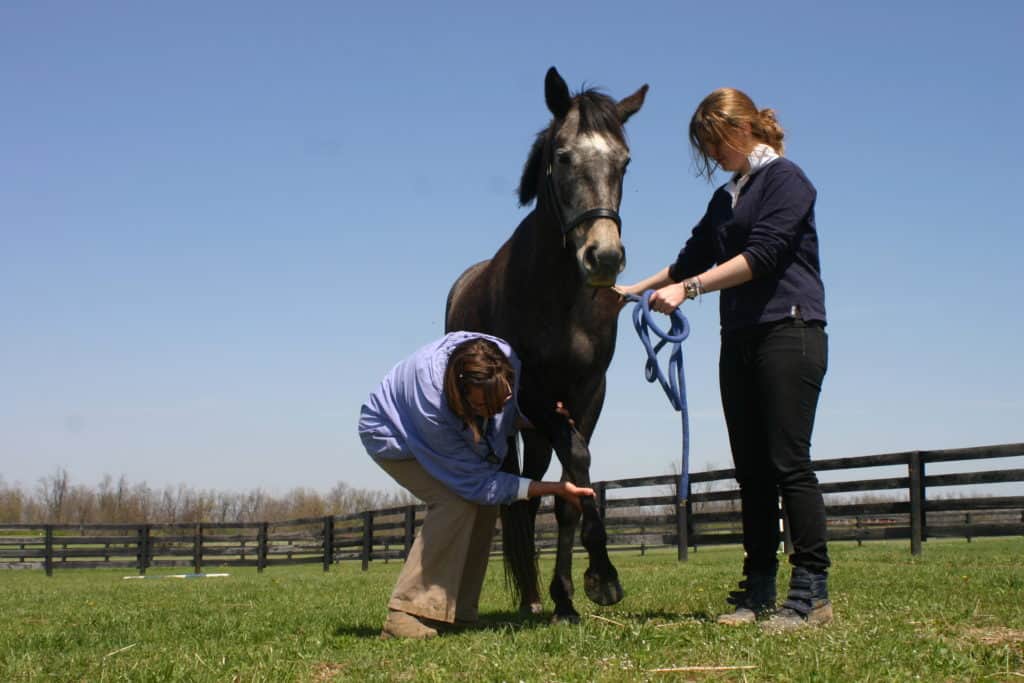
Compounded Unapproved Drugs Linked to Three Horse Deaths
Rapid Equine Solutions compounded the product, which was labeled as containing toltrazuril and pyrimethamine for the treatment of EPM.

Rapid Equine Solutions compounded the product, which was labeled as containing toltrazuril and pyrimethamine for the treatment of EPM.

The Horse: Your Guide to Equine Health Care/TheHorse.com and the EPM Society have formed a media partnership designed to help horse owners care for horses with equine protozoal myeloencephalitis.

A dressage horse recovered from EPM but still has an abnormal gait. An equine internal medicine specialist explains why owners of some horses with EPM might observe long-term gait and/or performance issues.

Dr. Rob MacKay shared presented research on ice boots and cryotherapy for laminitic horses, R. equi and insect bit hypersensitivity vaccines, EPM, and more.

Learn about colic, EPM, core vaccinations, biosecurity, donkeys, and more in our special features.

Parul Suri’s research is mainly focused on Sarcocystis neurona, a parasite that can cause EPM in horses.

Equine protozoal myeloencephalitis (EPM) can cause devastating neurologic illness in horses. Here’s what veterinarians know about how to diagnose, treat, and prevent EPM, and where the research is headed.

Could the causative parasite S. neurona reach faraway intermediate hosts via streams and rivers?

Scientists don’t know why some horses develop EPM and others don’t, but it’s probably not due to infection with multiple protozoal parasites, researchers found.

Use this four-step plan to keep equine infectious diseases in check.

Disease life cycle can be replicated for research in ways scientists didn’t believe was possible.

Two research teams investigated whether APPs could serve as EPM markers and came to similar conclusions.

Data suggest that veterinarians are treating EPM in the field and referring fewer cases.

During AAEP’s Kester News Hour, Dr. Rob MacKay reviewed his favorite studies of 2017, covering EPM, EHV, SAA, and more.

Diagnostic evaluation begins with a neurologic exam to localize the lesion and continues with more focused testing.
Presentation topics will include metabolic issues, breeding, melanoma, lameness in prepurchase exams, and more.
Stay on top of the most recent Horse Health news with
"*" indicates required fields